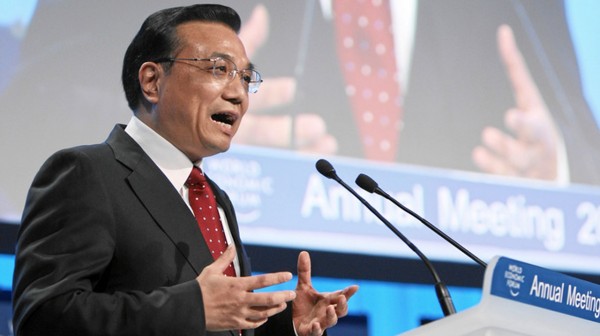Today was voted China’s new prime minister by about 3,000 delegates of the National People’s Congress. Following the 2949 voting delegates, Li Keqiang, member of the Standing Committee of the Political Bureau, received permission of majority 2940 voting for his appointment as prime minister.
Number two in the Chinese Communist Party (CCP) during the 18th Congress in November last year the official born in the poor Anhui Province (East), will have to assist the new President of China, Xi Jinping.
Keqiang aged 57 years, had the advantage of some qualities and references known as: financier, macroeconomic management, price controls, climate change, economic development that understands better than other Chinese leaders “occidental way of thinking” with in fact he studied law at the School of Law at Peking University in Beijing where he was a close friend of some promoters of democracy.
The new prime minister, a technocrat who speaks English fluently, is the main task rather shift to Chinese economic growth model based on domestic consumption than for large infrastructure projects in recent years.
Keqiang Li‘s appointment comes just a day after appointment as President of Xi Jinping in parliament, thus ending the transition to power of a new team that will lead second world power in the next decade.
If you’re wondering who is Li Keqiang, I can say that the new prime minister is a man polite, prudent and competent, but lacks charisma and initiative to reform the second world economy, according to analysts.
Li Keqiang made his entry into politics very young, in 1976, the year of Mao’s death, as secretary of the party to a production brigade.
His private life is not known, as the majority of senior Chinese officials. According to Chinese media, his wife, Cheng Hong, teaches literature at the University of Beijing and the couple has a daughter studying in the United States.
A minus point that has in his past is that while he was led Henan in the period 1999-2003, the province authorities have systematically hindered the work of NGOs and journalists concerned with the elucidation of a huge virus contaminated blood scandal AIDS.
More recently, the Chinese government was disappointed before a series of health scandals, despite the creation of a commission led by Li Keqian to reach a result.
However, the new prime minister demonstrated critical. A diplomatic telegram published by WikiLeaks revealed that in 2010 he had doubts about the reliability of Chinese economic statistics.
He replaces Wen Jiabao, who led for ten years, under President Hu Jintao, China’s spectacular economic growth marked by an annual average of over ten percent, which however fell to less than eight percent last year.

